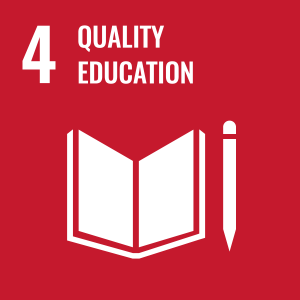Child Development and Education
Editor: Ebru Uysal
Cappadocia University Press: 23
Child Development and Education Series: 2
ISBN: 978-605-4448-14-2
© Copyright, 2020, CAPPADOCIA UNIVERSITY PRESS
Certificate No: 43348
Preparation: Halil Burak Sakal
Series Editor: Münire Aydilek Çiftçi
İllustrator: Eren Özyürek
Cover Design: Nazile Arda Çakır
Page Design: Adem Şenel
1st edition, 532 p, 16×24 cm.
Keywords: 1. Montessori, 2. child development, 3. daily life, 4. exercise, 5. independence, 6. co-ordination.
Montessori Practices of Daily Life Skills, the second book in the Child Development and Education Series, was prepared to guide adults who spend time with preschool children. The presentation of daily life skills tools classified in four different categories was explained step by step in a simple language and enriched with illustrations.
The first book in the series, Montessori Sensory Tools Applications, is both a theoretical and video-supported guide that includes the presentation of tools designed to support different senses. This book, on the other hand, aims to experience the life skills that children will encounter in daily life with Montessori tools and apply these skills without the need for an adult.
Montessori tools of daily life skills are applied in a structured and prepared environment suitable for the child. They are far from danger and make the child feel the life. Practices of daily lifeskills are the preparatory tools for sense, mathematics, language and other Montessori tools.
Every tool offered to the child has direct and indirect purposes. In the Montessori education model, the goal is not to reach the desired goal immediately. The child is also supported by additional work prepared by the teacher after working with the main tool. At the same time, the child’s holistic development is supported by his or her dealing with tools in other areas. Children working with Montessori tools develop a personality that loves working, has a sense of responsibility, able to cope with problems, and is at peace with himself or herself and his or her environment.

Ebru Uysal completed her undergraduate studies in the Department of Home Economics of Ankara University. She completed her master’s degree in the Department of Child Development of Ankara University with her thesis entitled “Research into the Areas of Multiple Intelligence in Children Attending Various Preschool Education Institutions”. She received a Pedagogical Formation Certificate from Hacettepe University. She worked as a child development specialist in the Foundation for the Education and Protection of Children with Intellectual Disabilities, in Gölbaşı, Ankara. Thereafter, she continued her profession as a child development specialist in the Çağlayan Special Education Institution in Istanbul, and was appointed director of the institution after the opening of the İlk Destek Special Education and Rehabilitation Center – the second branch of the same school. In the following years she worked as a preschool teacher in the United States, and first learned about Montessori Education while working at University Montessori School, and undertook Montessori teacher training at the Montessori Schools of Irvine, from where she received an internationally recognized certificate. She has worked as a preschool teacher in various colleges in Turkey, and is currently employed as a lecturer in the Department of Child Development of Cappadocia University, and as the education coordinator of Montessori Kindergarten Schools in the same university.
She has training certificates on Sensory Integration, Drama, the Orff Approach, Dyslexia, Alternative Schools Trip, Sex Education for Disabled People, Language and Speech Education for Individuals with Special Needs, Values and Behavioural Change and the Nine Types of Temperament Model.
The author’s article entitled “Research into the Areas of Multiple Intelligences in 6-year-old Children Attending Different Kinds of Preschool Education Institutions in Turkey” was published in the International Journal of Educational Reform (IJER).
Click to see the book.
